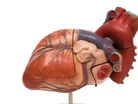Patients will 'grow' new organs in future, surgeon says

It has been claimed that in the future, patients will be able to replace their failing organs by simply ‘growing’ new ones.
Professor Paolo Macchiarini, one of the leading transplant surgeons in the world, said the technique, which would use the patient’s own stem cells, could even solve the world’s organ shortage.
Macchiarini was responsible for a pioneering trachea transplant in 2008. The organ had been taken from a donor, had the living cells removed and had then been manufactured using the recipient’s stem cells.
He believes that the regenerative medication and technology is now so advanced that it will allow professionals to carry out similar transplants that do not rely on human donors.
To read the latest edition of Healthcare Global, click here
- Alcoholics could be treated with hallucinogenic LSD
- Cancer fears force Coke and Pepsi to change recipes
- O2 launches mobile health service ‘Help at Hand’
By using stem cells to enable patients to grow new organs to replace ones that are failing, there would be no need for them to take immuno-suppressive drugs for the rest of their lives following the transplant.
It would also remove the risk of the organs being rejected, as can be the case when patients receive donor organs.
For this revolutionary process to work, stem cells would need to be injected into an artificial scaffold.
One possible way of making the artificial scaffold would be to remove the living cells from animal organs, and then injecting the stem cells into those organs.
After the stem cells have been injected into the scaffold, a fully-functioning organ will be grown and will be ready to be transplanted in the patient.
Writing in the medical journal The Lancet, Professor Macchiarini said: “Such an approach has already been used successfully for the repair and reconstruction of several complex tissues such as the trachea, oesophagus, and skeletal muscle in animal models and human beings.
“Guided by appropriate scientific and ethical oversight, (this) could serve as a platform for the engineering of whole organs and other tissues, and might become a viable and practical future therapeutic approach to meet demand after organ failure.”
